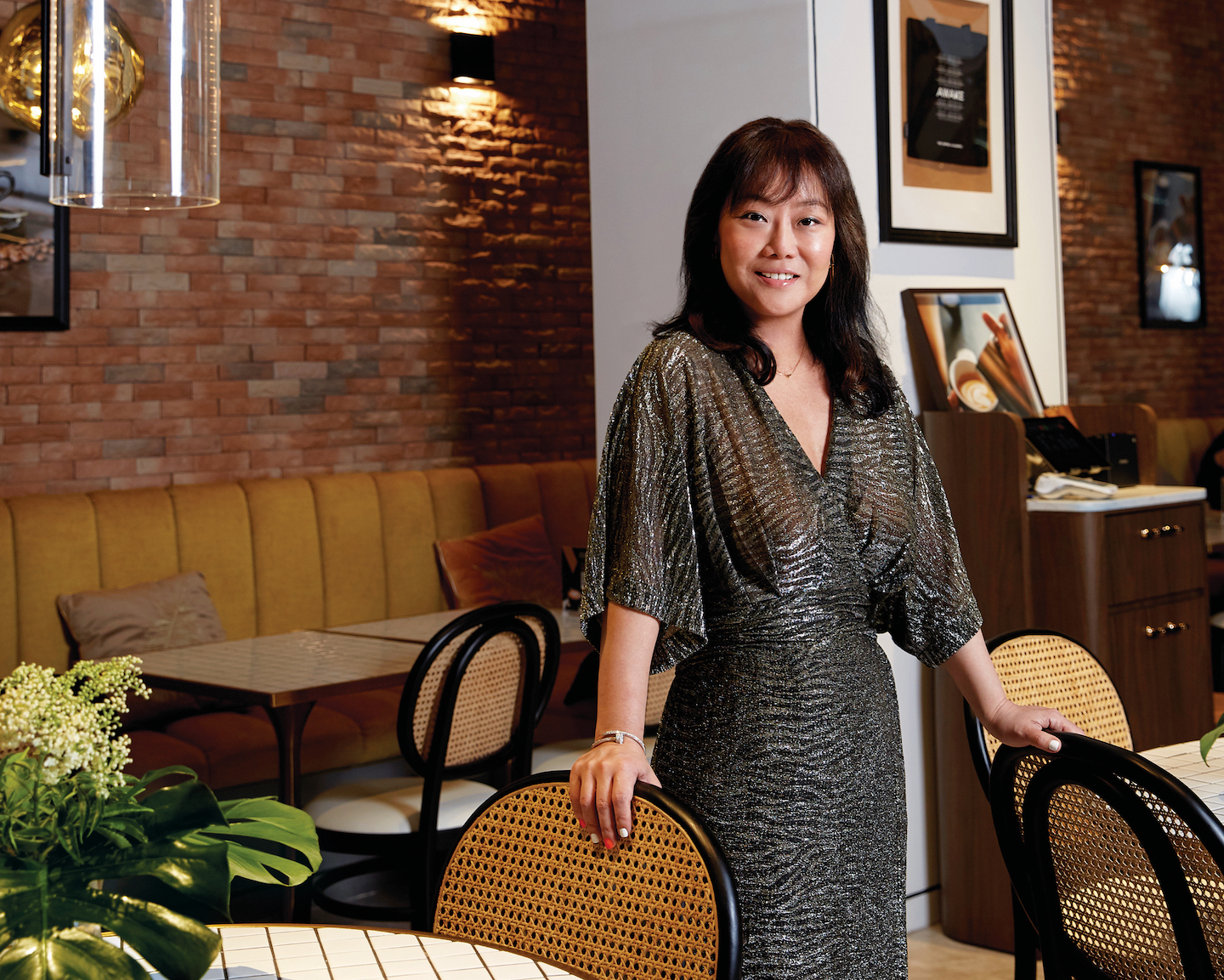
Founder of The Coffee Academics Jennifer Liu is also an architecture graduate from Cornell University, New York (Photo: SooPhye)
Many of us arrive at adulthood without realising we have crossed that milestone. The moment that marks the onset of maturity is usually hard to pinpoint. Is it the flipping of the tassel at graduation? Or when we sneak into dad’s secret cellar and discover a carnival. Maybe it is the way we start to weigh ourselves — using numbers, awards and accomplishments. For Hong Konger Jennifer Liu Wai Fun, the transition to adulthood was bitter as it was the first time she had coffee. But it was also sweet because it was tied to a cherished ritual with her father.
To be six years old is to be curious about life. “When I was young, my father was always busy, so we didn’t spend a lot of time together. But on the days he was free, we would hike up Victoria Peak early in the morning and end our trip at Cheung Hing cha chaan teng (Hong Kong-style café) in Happy Valley. For him, it was newspaper time; for me, it was breakfast, which usually consisted of milk or Milo. But one day, he said, ‘I think you’re ready to try coffee’. My first sip wasn’t very pleasant but I was like any other kid — imitating adults or their appetites make you feel like a grown-up,” says the founder of The Coffee Academics, a Hong Kong-based specialty coffee chain that opened its 40th outlet at Pavilion Kuala Lumpur two months ago.
_s1a3971a.jpg
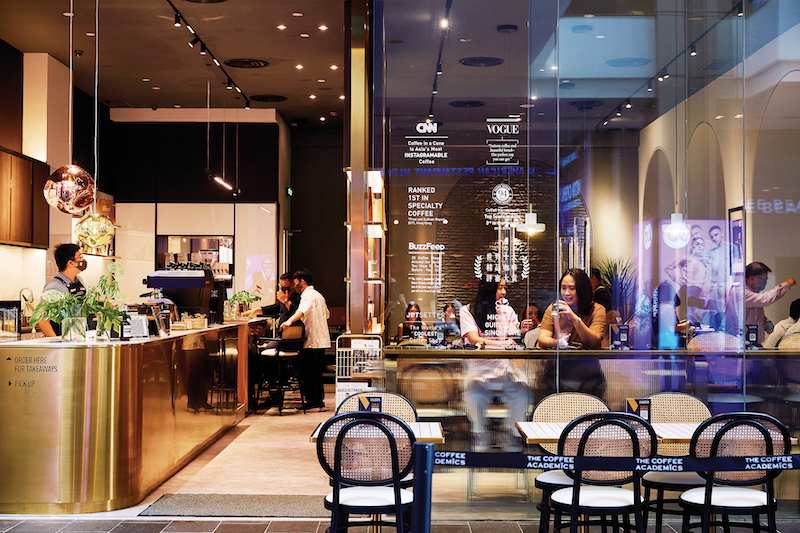
The traits and traditions we inherit from our parents are, often unwittingly, through DNA and demonstration. A father’s advice can gently soothe but also calcify as a life lesson. “I had more ling yung qin (pocket money) than my brother because my father wanted him to learn to manage his finances. I was also given more freedom ‘to see the world to understand what I want’. It was my father who persuaded my mother to let me go on a summer trip to experience life outside of boarding school in Toronto, Canada. At 15, I was travelling around France and Italy learning about winemaking, fashion, art and coffee,” she says.
As a whole, these know-hows do not paint an obvious career track but they lit a spark that blazed a trail in different ways years later. Liu was born into the family who owns Chong Hing Bank, but despite her parents being financial elites — Thomas Liu-Lit Ching, a banker; and Rita Tong Liu, the real estate tycoon who founded Gale Well Group — she was never pressured into following their footsteps. Instead, she lived by her values and chose to do a degree that is just as estimable as finance: architecture.
Her worldly experience, an asset to her strong portfolio, landed her a place in Cornell University, New York, where she reasserted her relationship with coffee. “A lot of students came from various backgrounds but we bonded over a cuppa. The Japanese brought their siphon and drank from saké cups; some students brewed using moka pots. Being so westernised myself, I stuck with the French press. This is the magic of coffee — it’s a universal language that not only fuels inspirations but also conversations,” she enthuses, while taking a sip of her go-to drink Steam, an iced “steamed” espresso whose natural sugar has been emulsified to create a frothy texture.
steam_2.jpeg
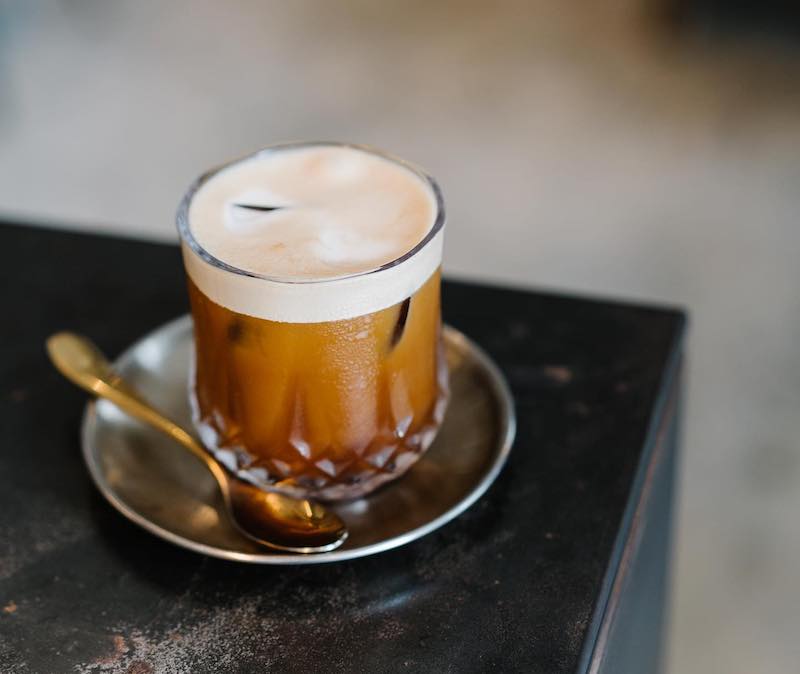
We seek out skyscrapers in the skyline, both to locate our bearings and anchor ourselves psychologically in the pulse of the city. This, Liu learnt at Cornell. But a rewarding takeaway came from a guest lecture with the late Zaha Hadid, whose monuments are fertile in imagination and daring in ideas. Ambitious, analytical and an aspirant of spectacles, she urged the young to look at the bigger picture when they get lost in smaller details. Her designs, more than just enlivening a street, are incentives for entering a building, where you engage with your eyes as well as your feet. This principle is not any different from setting up an inviting coffee shop, which relies on aesthetic and footfall to encourage gathering and sociability.
However, to pioneer a new coffee culture in Hong Kong, one first has to understand its cultural make-up. Hoping to introduce European handcrafted coffee to city-slickers who grew up on a steady diet of lai cha (milk tea) and sai do si (French toast), Liu set up her F&B brand Caffe Habitu — a play on the word habitual or habitat — at Causeway Bay’s Lee Gardens in 2003, the same year the severe acute respiratory syndrome (SARS) epidemic hit and ravaged the economy. It was a challenging time for her, as she was coping with the loss of her father months before Habitu opened while fending off industry naysayers. “They claimed that the name is hard to remember because it is three syllables, not two, like Starbucks,” she recalls. “People wondered why I went into coffee because, at the time, it wasn’t really a profitable business. You couldn’t make it big by selling small cups of coffee.”
Days felt longer when the queue outside Habitu grew shorter. “Suddenly, you feel like you’re alone in the world,” she says. But just when the future seemed uncertain, reinforcements came through the mail. “We started getting notes, or love letters as I call them, from our customers who told us what we could improve on or which local organisation we could work with to source our produce. They even donated books to spruce up the café. That sense of community made me feel that there were people rallying behind me.”
habitu.png
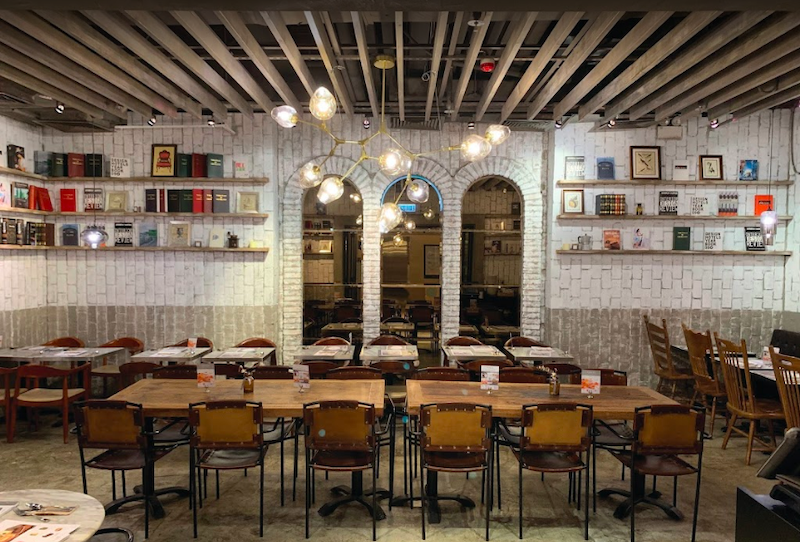
Give back to where you live, they say. So Liu called the shots and started 2012 on a full plate. Still steadfast in her caffeinated pursuit but armed with a renewed purpose to nurture local talents, she launched The Coffee Academics (not “academy”, she points out, because “it’s about the people”) at Causeway Bay. In no time, the brand racked up awards for its TCA House Blend and JWF Blend with a rating of 92 and 93 points respectively, and ranked No 1 in specialty coffee by the Frost and Sullivan Report in 2017.
“Hong Kong is slowly becoming like Taiwan, where mom-and-pop as well as independent coffee shops are managed by the younger generation, who want a bit of yan cing mei (human touch). However, to them, having a personal touch means that a business needs to remain small and intimate. I am more of a risk-taker. From the get-go, I envisioned The Coffee Academics as a boutique chain that is globally renowned but also warm and personable enough to connect with people without losing that yan cing mei.”
But this Pearl of the Orient, a place that spins dreams and captures the imagination of the world, is fast a-changing. Old neighbourhoods, each a microcosm of the vibrant small-business scene that colours the metropolis, are buckling under gentrification. Escalators — expressways to dai pai dong (hawker stalls), speakeasies and tong sui shops plastered with Andy Lau posters — are leading visitors to shuttered entrances more than surprises. As the city’s neon glow dims, so does its lustre.
“I was born into that generation when Hong Kong was famously known as the epicentre of entertainment. Even Malaysians grow up on the same Canto-pop culture, dominated by the likes of Anita Mui or gor gor Leslie Cheung. However, due to the economic downturn and social unrest in the past decade, everybody feels a bit lost. Therefore, expanding The Coffee Academics beyond the confines of Hong Kong is an exercise in pride — to show that we still have good and passionate brands to be exported to the world. We want Asia to remember us again. Hopefully, that will restore confidence among our younger generation.”
rouge.jpeg
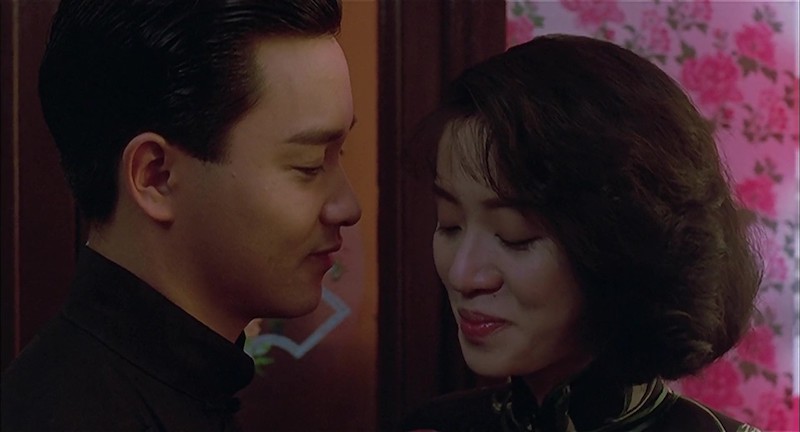
The architect in Liu understands that a healthy city cannot merely be designed; it needs to be enacted by its citizens. The Coffee Academics is more than just a seven-syllable name (critics, if you are counting) with outlets across Mainland China, Thailand, the Philippines, Singapore and Indonesia, or a clutch of astutely designed coffee hubs that peddle a famous version of the world’s most Instagrammable beverage, Coffee in a Cone. It has grown into a talent incubator that moulds employees — by giving them training in roasting, blending and brewing — into highly sought-after baristas. Some even won coffee championships or turned entrepreneurial to branch off on their own in Hong Kong, Sydney and Japan. In a way, investing in their capabilities and ventures is a means of keeping the coffee industry and ecosystem alive so everyone can thrive.
The Coffee Academics, which roasts its coffee 100% in Hong Kong, is responding to the changing demands of consumers, who are now more socially conscious about what goes into their daily fix. The brand is making the hard work of drinking responsibly a little easier by sourcing only the top 5% of specialty-grade Arabica coffee directly from over 50 independent farms globally. By definition, specialty coffee refers to those that have scored more than 80 points on a 100-point scale by the Specialty Coffee Association. Moreover, its beans are acrylamide-free and 70% of its most popular House Blend gives back to farmer communities through charities and social enterprises worldwide.
Partnering various charitable organisations under the TCA Connect Foundation, the boutique chain is furthering dreams just as much as livelihoods in the region from which it sources its beans. In Ethiopia, the Girls Gotta Run Foundation pays for shoes and sports programmes to support the independence of underserved girls. Precious jaguars in Costa Rica get to live another day, as Genuine Origin uses proceeds to finance Fundazoo’s conservation programme. In Yunnan, China, the ingredients supplied to The Coffee Academics are produced by a Lisu minority farmer, Lu Ming-Chun, who lifted his family and fellow neighbours out of poverty.
coffee_cone_new.jpeg
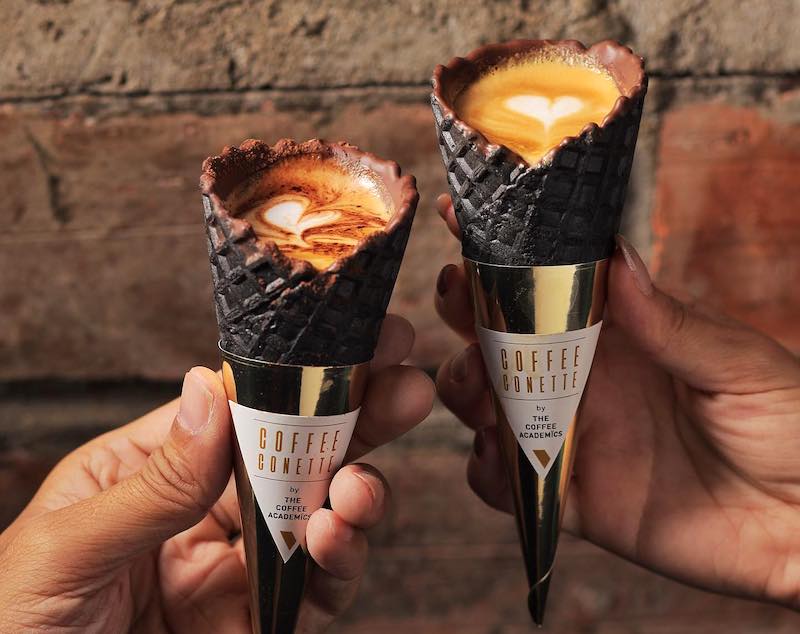
If philanthropy informs one’s priorities, what awakens Liu’s empathy? Girls look up to female role models in the world where they can dream of being whoever they want to be — but you cannot dream of what you cannot see. Thus, Liu is helping women fight for a seat at the table under her own banner JWF Charitable Foundation, which advocates female empowerment and supports underprivileged children in the development of the arts. She also founded the Weekend Upcycling Workshop in 2014, which narrows Hong Kong’s social gaps by promoting sustainable lifestyles. Her charitable efforts and influence on the transformative coffee scene currently sweeping Asia have earned her numerous accolades across the years, including The Greater Bay Area Outstanding Women Entrepreneur Awards 2019 for contributing to the development of the Guangdong-Hong Kong-Macau area and Forbes magazine’s Top 25 Asia Power Businesswomen of 2019-2020. There is, however, one award that is more meaningful than the rest.
“It’s the 40 Under 40 Awards 2012 presented by Asia’s leading architecture and design magazine Perspective. There are, of course, bigger awards that measure one’s success but this recognition, although a relatively small one, measures my talents. I used to question myself if I did the right thing choosing coffee over architecture. But receiving this honour is an answer to myself as an architect. I did spend a few good years at Cornell after all,” says Liu, who recently added another feather to her crowded hat as a certified roaster.
Recognitions are testaments to one’s experience and leadership, which are useful to pull employees out of despair when a company runs into a crisis. But even battle-hardened confidence can languish before the unpredictable, like the months-long Hong Kong protests in 2019 and the ongoing coronavirus pandemic. Thankfully for Liu, a retired chief financial officer friend stepped in to restructure the company’s finances, so she had more time to look after her employees’ welfare. When one can no longer pour from an empty cup, a wise solution is, perhaps, to stop and smell the beans.
“The office became so cold and tired. We became robots. Being an inspiring leader is a lot of pressure because you’re expected to be strong, determined and reassuring all the time. But that is impossible — when your emotional being is unwell, it ripples out to the rest of your organisation. I’ve learnt to focus on what I’m good at [people-building] and started delegating so I don’t lose the human part of myself. When I want to relax, I’ll go hiking along the MacLehose trail or the Lion Rock. I’m trying to attempt 12 consecutive hikes every Sunday for six hours.”
brazil coffee.jpg
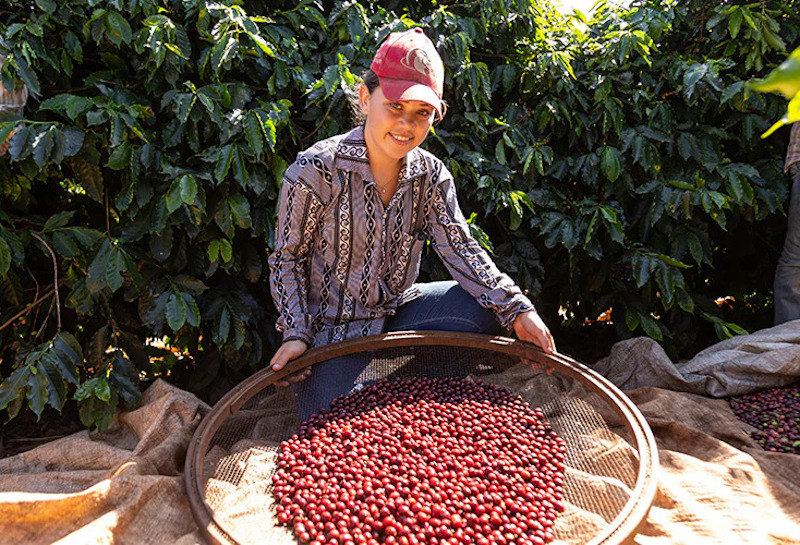
For now, Liu is looking to streamline the outlets to offer the same service quality and consistency while retaining their unique charm. For example, the beach-facing outlet in Repulse Bay exudes a tropical resort vibe, while the Scotts Square branch in Singapore looks particularly artsy (trivia: the broad strokes decorating the large columns were serendipitously made by a roller). The Malaysian outpost gears towards New York chic, awash in a warm patina complemented by a striking blend of glass and steel, dangling lights, sprawling seats for collaborative meetings as well as comfy nooks that carve out some privacy. Diners may be able to sample an elevated version of nasi lemak soon, alongside signature dishes from each country The Coffee Academics is based in — the popular laksa pasta from our southern neighbour is one.
As we take a final glance around the room during our interview, a few tables sporting mosaic tiles usually found in cha chaan teng, which are drifting into obscurity, evoke a feeling of nostalgia. A question immediately comes to mind: Will big chains ever displace kopitiams and local institutions that first laid the foundation of our long-standing coffee culture?
Liu says, “Independent coffee shops will never lose their attraction, character and personality. But we also need to take our urban lifestyle into consideration. People want a cup of coffee from a place that’s consistently reliable and maybe, not too far from their workplace. The question of displacement is never a zero-sum game; it’s not a case of ‘We come in, and the old guards have to go’. To me, Cheung Hing is Cheung Hing, and you can’t find a TCA outlet to replace it. In fact, our Happy Valley outlet sits at the end of the block on Yik Yam Street where Cheung Hing is. Sometimes, customers would go for a leisurely brunch at Cheung Hing and sometimes, they’ll get a grab-and-go from TCA. I truly believe they can coexist together.”
repulse_bay_tca.jpeg
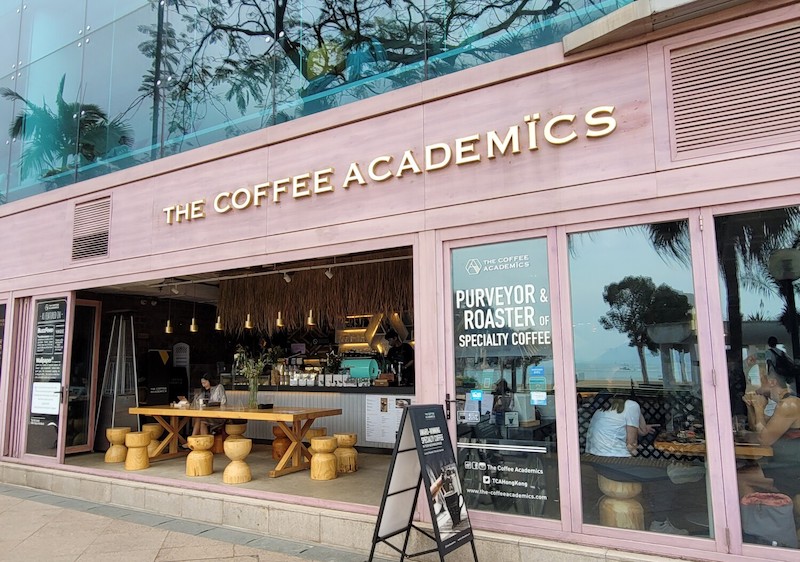
Liu has always thought of The Coffee Academics as a cultural bridge, which nurtures her connection with her homeland while paying tribute to the borderless nature of coffee. The brand’s next stop will be skiing wonderland Niseko in Hokkaido, Japan, where tourists can rest their tired feet after a day of scaling the mountains and snow-covered slopes over a warm cuppa. The largest ski resort on the island will serve as a testing ground for Liu’s expansion plans across the country.
“It’s never easy to start a new business, but having a clear set of goals will make it much easier for your team and customers to identify with you,” she says. “In architecture, you only have to provide the blueprint, choose your materials correctly and work within a budget to construct a building. That’s probably the end of it. But in the F&B business, if you want to ensure brand longevity, you’ll need to invest in the people as much as in the ingredients that go into your final product. I think building meaningful human connections is what my father would have wanted me to learn after all.”
This article first appeared on May 23, 2022 in The Edge Malaysia.


